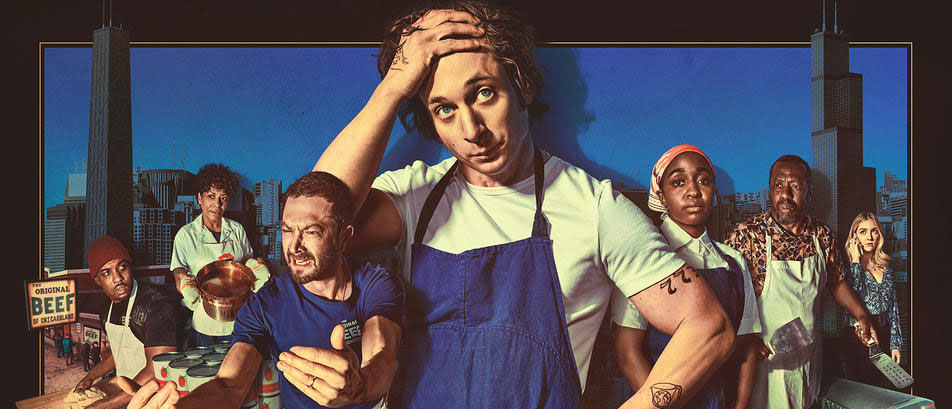It feels like I just left here. This is the first thought stumbling through my mind as I listen to the deadbolt release, allowing me to enter the dark room I vaguely remember departing just a few hours ago. I haven’t slept. I don’t think I have anyway. Maybe a slight slipping into unconsciousness at one point, but not sure if my memories are dreams or if said dreams are memories.
Entering the space, an echo of the band who graced the stage last night welcomes me back. A cover band. It’s always a cover band, but a damn fine one supplied the riffs, which now are being replaced by the thumping of a hangover-induced headache two Goody powders haven’t remedied yet. I mouth the lyrics to an Oasis tune they absolutely murdered and start unstacking chairs and barstools.

Justin Cox
A fair amount of cleaning was done, but some finishing touches need addressing before I head to the walk-in. Cleaning products are brought out, and disinfecting odors mix with the fragrance of stale beer. With the tag team of Mr. Clean and PBR in full effect, I snake around the bar and move toward the walk-in cooler.
Giving a quick glance around, I don’t appear to be in too bad of shape. I have what I need. I pass by the fryer whose oil was swapped out yesterday and flip open my station to discover I’m only somewhat screwed. Most of my prep work has been done, but there are blatant holes that will earn my fellow co-worker an eyeroll and prompt WTF from me once he shows up. You really couldn’t knock out some salad dressing? C’mon!
With shortcomings of blue cheese and ranch aside, I double check to make sure everything that needs to be on is indeed on and decide to “hit the head.” I shuffle toward the restroom with my stomach lurching, reminding me of last night’s activities in a way my brain currently cannot. In the words of Mike Myers’ SNL character Wayne Campbell, no one “hurled chunks,” and I was thankful my excursion held nothing more than a few splashes of cold water on my face accompanied by a short assurance in the mirror that if I just kept moving the room would stop spinning.
Now, with surface temperatures increasing, I step outside the back entrance and see the patio and the seat I sat in until 5:00 that morning still upright and accounted for, so I slide back into it just for a moment.
It’s 9:30, and I’m paying for every sin I committed after I clocked out. So goes my life as a line cook.
PTSD from The Bear
This memory rushed back to me recently after tuning in to The Bear, produced by FX on Hulu. It’s a series detailing the ins and outs, highs and lows of an institutional sandwich shop in Chicago. It’s must-see TV if you’re a person who has stood behind counters or broilers in a professional kitchen.
Those who have been in those roles are hopping on social media to express how the show has triggered them to experience PTSD. Even for someone like myself, whose time was limited in such an environment, so much of the show resonates. Especially the lifestyle of it all.
“The service industry and kitchen beckon those who wish to try something new, inviting them to exist in the unfamiliar.”
The kitchen where I once worked, far from a Michelin star contender, was an abrasive counterculture club for individuals who couldn’t do the standard 9-to-5 grind or were just exhausted from it. The service industry and kitchen beckon those who wish to try something new, inviting them to exist in the unfamiliar.
In my case, this included pursuing all manners of pleasure-seeking and self-indulging activities while tossing plates in windows for pick up. And I was surrounded by comrades who thought and lived the same.
Years later, I saw a common term used by cooks and chefs to describe the life I so briefly tasted. Chef, bestselling author and producer of The Bear Matty Matheson nailed it when he named the boisterous and bawdy constant partying, the endless flow of spirits and the excessive amount of ever-available illegal substances. “It was an actual pirate ship,” he said in a 2016 interview.
Too right, me matey, too right indeed.

Jeremy Allen White as Carmy in “The Bear” with his ragtag kitchen crew.
But before you start to think all kitchens are an experiment of mischief and mayhem, a pirate ship still needs to run. There must be some order present. Brigade de cuisine, a hierarchy-driven system developed by the famous chef Georges Auguste Escoffier, offers a structure most three-star generals would cosign. And then there are those revolutionary kitchens, like Noma located in Copenhagen, changing what a dining experience is and might become through creativity and imagination. You can’t burn the candle at both ends and do this kind of work well, not for long anyway.
Be it a local farm-to-table establishment in Maine, a noodle joint in California, or a Manhattan institution that flies in fresh seafood from Japan, the people who work behind the scenes are real, committed and wired differently than most.The Bear shines a glaring spotlight on this eclectic group, many of whom come from all walks of life, working day after day to create something special as they fill the bowls and bellies of the masses. They are a pirate crew of status-quo-wrecking outcasts and savory serving savants who’ve miraculously found a home and calling beside one other.
Why isn’t the church a last refuge for the misfit?
My own patron sinner, Anthony Bourdain, wrote about this in the New Yorker article that launched his career away from the kitchen of Les Halles and into the stratosphere: “In America, the professional kitchen is the last refuge of the misfit. It’s a place for people with bad pasts to find a new family.”
Bourdain was writing from his own experience and referencing staff he’d worked with over the years, so his findings are not exhaustive, but as I binged The Bear I thought of his claim. I reflected on his observation, realized the truth of it and saw the indictment it brought against the universal Christian church I call home.
“Why is it not the church but the professional kitchen that offers refuge for so many misfits, outcasts and those on the fringe of society?”
Why is it not the church but the professional kitchen that offers refuge for so many misfits, outcasts and those on the fringe of society? Why aren’t those seeking second chances finding their way into churches? Maybe it’s because those who’ve peeked inside sanctuaries for the past several decades have found clergy who appear polished and put together but not approachable. More CEO and executive-type ministers aimed at results instead of relationships.
You can call me ‘chef’
How does one address the growing distance between the pew and the pulpit? Let’s start with unconditional respect.
One of the running lines in The Bear starts with the new owner calling everyone “chef.” When asked why, he says, “I refer to everybody as ‘chef’ because it’s a sign of respect.”
Maybe some of us who hold to an idea of a “priesthood of all believers” might do something similar in our own spaces. Respect should be the first thing offered to people no matter their title or status.
But let’s be honest here, kitchens are far from perfect spaces. I’ve read enough experiences from female chefs like Lisa Donovan and Gabrielle Hamilton testifying to this fact. But the kitchen does make amends the institutional church does not. It owns how jacked it has been and still is.
“Professional kitchens and service industry folks understand the notion of repentance better than most Sunday school teachers.”
If I were to get a little “preachy” right now, I’d say professional kitchens and service industry folks understand the notion of repentance better than most Sunday school teachers. Dishwashers dish out more mercy than deacons. Hostesses harness a level of hospitality and kindness most congregations would be too ashamed to put on a church sign. And while those working the line might be inclined to shout the Lord’s full name from time to time, they do so while practicing a level of in-the-trenches acceptance for each other that looks and feels a whole lot like the teachings of Jesus who journeyed with his own ragtag pirate crew.
Binging The Bear, I felt a pang of envy for a community I once experienced. One I was allowed to enter judgment free, one that was unabashed and bold in its existence. One that was a bit unpolished and crude but never lacked compassion. The people I shouted at, spun around and bumped into daily were rough and crude at times but always welcoming of me. They made me feel I had a place there and was valued. And on those days when I struggled to keep up or even function, they encouraged me to keep showing up.
How many Sunday morning social clubs can say the same?
How many even want to?
How long before we trade our love of stoles for chef aprons?
How long, Lord?
Justin Cox received his theological education from Campbell University and Wake Forest University School of Divinity. He is an ordained minister affiliated with the Cooperative Baptist Fellowship and enrolled in the doctor of ministry program at McAfee School of Theology. Besides reading, spending time in the kitchen and amateur gardening, Justin spends time with his spouse, Lauren, and their two daughters. He began his tenure as senior pastor of Second Baptist Church in Suffield, Ct. in August. Find his ramblings at blacksheepbaptist.com.
Related articles:
Is the church only for ‘good Christians’? | Opinion by Terry Austin
I’m adopting a patron sinner for All Saints Day | Opinion by Justin Cox
A home for outcasts or a keeper of the ‘sacred timeline’? | Opinion by Tyler Tankersley


